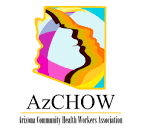Healthcare workforce shortages often contribute to health disparities in rural AZ. That’s because rural communities tend to have fewer physicians, nurses, specialists, and other healthcare workers… and at the same time face higher rates of chronic disease, mental illness, and obesity than urban areas. Having enough healthcare personnel in shortage areas can contribute to those health disparities.
Additionally, health care providers working in shortage areas can experience isolation from their peers and burnout from seeing a greater number of patients and working longer hours than those in non-shortage areas.
A critical element to ensuring an adequate healthcare workforce is to improve the reach of provider recruitment programs, which can build a strong and diverse healthcare workforce that represents the population served.
This year was particularly successful at the Legislature as they approved an additional $750K for the state loan repayment program (bringing the total budget to $2.75M) as well as more resources for rural Graduate Medical Education ($1.6M for rural Graduate Medical Education -$5.5M w the federal match) – which can be use to bolster graduate training in rural AZ (this GME training is really important because it’s a key factor in where a provider practices over the course of her or his career- improving rural networks). There was also an additional $750K that was invested in the North Country GME program.
Arizona Primary Care Office
Arizona is fortunate to have an effective Primary Care Office program at the ADHS’ Bureau of Women and Children’s Health along with public policies that have been passed in the state legislature that help to improve the state program’s effectiveness.
Our in-AZ resources to improve workforce capacity and access to care in rural and underserved AZ include the Arizona State Loan Repayment Programs, J-1 Visa Waiver Program, and at the national level, the National Health Service Corps and Nurse Corps.
Our state Primary Care Office also manages data collection regarding healthcare provider shortage areas (HPSAs) and information like Primary Care Area Statistical Profiles as well as maps and a host of additional data resources.
UA Center for Rural Health
We also have terrific programs at the UA Center for Rural Health which has rural health programs like the Rural Hospital Flexibility Program (AzFlex), the Small Rural Hospital Improvement Program (AzSHIP), Arizona First Responders Initiative (FR-CARA), The Rural Health Professions Program (RHPP), Workforce Data & Analysis (CRHWorks), Arizona Rural Recruitment and Retention Network (Az3RNet), Students Helping Arizona Register Everyone (SHARE), the Prescription Drug Overdose Program, and Health Insurance Assistance.
Arizona Area Health Education Centers
Arizona also has a unique system of AZ Area Health Education Centers that are established under state law (voter approved) “… enhance access to quality healthcare, particularly primary and preventive care, by improving the supply and distribution of healthcare professionals through educational partnerships between academic and community organizations in rural and urban medical underserved areas.”
The Program has a state office at the UA and several local AHECs that promote community and educational partnerships to enhance access to quality health care with an emphasis on the needs of rural and urban underserved communities and populations. Their missions also include educational programs in partnership with academic institutions, communities, health care agencies, and other organizations that promote the health of Arizona residents.
Arizona Rural Health Association
We’re also fortunate to have the Arizona Rural Health Association (AzRHA) in our state doing advocacy for rural health. The AzRHA was established in 1994 as an independent organization after serving as the Advisory Committee of the University of Arizona Rural Health Office (RHO) for many years. While AzRHA continues to serve as the RHO advisory body, its functions have been expanded to cover many areas involving advocacy for rural healthcare programs.
Access to healthcare is an essential component of health and wellness. By providing financial incentives for clinicians to practice and train in rural areas and by collecting data on provider shortages and using that data to make policy adjustments, Arizona is increasingly poised to make measurable improvements in rural networks as a result of this year’s legislative session decisions.

